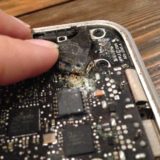Microsoft Buys Nokia (sort of): A Caveman Could Have Predicted This
In a move that literally anyone not living on a remote island in the middle of the atlantic could have predicted, Microsoft bought Nokia’s devices and services division.
Essentially, Nokia kept its profitable corporate products, while Microsoft bought the division behind the infamous Lumia 920, Lumia 1020, and other Windows phone devices. Engadget is reporting the deal to be worth around $4.9 billion.
Why Microsoft Bought Nokia
It took a lot of failure to see the need for such an acquisition. From Windows Vista, to the Surface, Microsoft has had failure after failure over the past decade, with engineers and leaders unable to come up with devices that would sell. Nokia, kind enough to build Windows Phones when no one else would, saw moderate success with their own devices.
The purchase gives Microsoft a few valuable things:
- A functional hardware development division: As shown by the surface, Microsoft’s own engineers and designers simply didn’t know how to build a desirable product at a moderate price range. The Lumia 1020, with an unprecedented 41 megapixel camera, proved that Nokia had what Microsoft desired. Microsoft will take on over 30,000 Nokia employees, significantly growing the labor force at Microsoft, and profoundly changing the company.
- Patents, and innovations: Along with those divisions, Microsoft also gains from decades of useful patents and innovations developed by Nokia. The technology behind their cameras will likely be amongst the most valuable offerings, but Nokia has quite a few patents that Microsoft has been craving. There’s a reason that Microsoft payed more than $2 billion for Nokia’s patents alone.
- Talented Engineers, and leaders: Microsoft’s Steve Ballmer, CEO, who announced he was stepping down recently, isn’t the only person inside Microsoft who doesn’t have good judgement when it comes to mobile devices. After years as a software company, Nokia’s experienced hardware executives and engineers should prove valuable editions to Microsoft.
Will It Really Help Microsoft?
Short Answer: It can’t hurt.
Microsoft is obviously trying to grow Windows Phone 8’s miniscule market share (4% of the US Market share as of July), as well as their own margins on each device. Ironically, the company that once so criticized Apple for their decision to 1. Build a touchscreen smartphone, and 2. control both hardware and software of their phones, has decided to do just that.
Windows Phone 8 isn’t going to be the market leader anytime soon, but this should help with Microsoft’s hardware woes, and should leave Microsoft with certainly a chunk of the market. Google Inc decided last year to buy Motorola’s smartphone unit, and their own Android OS has made significant progress since then.
Ultimately, I think this was the right choice for Microsoft. They’re not going to be the industry leader anytime soon, but this should stave off their demise, and help them finally penetrate into the challenging mobile market.








